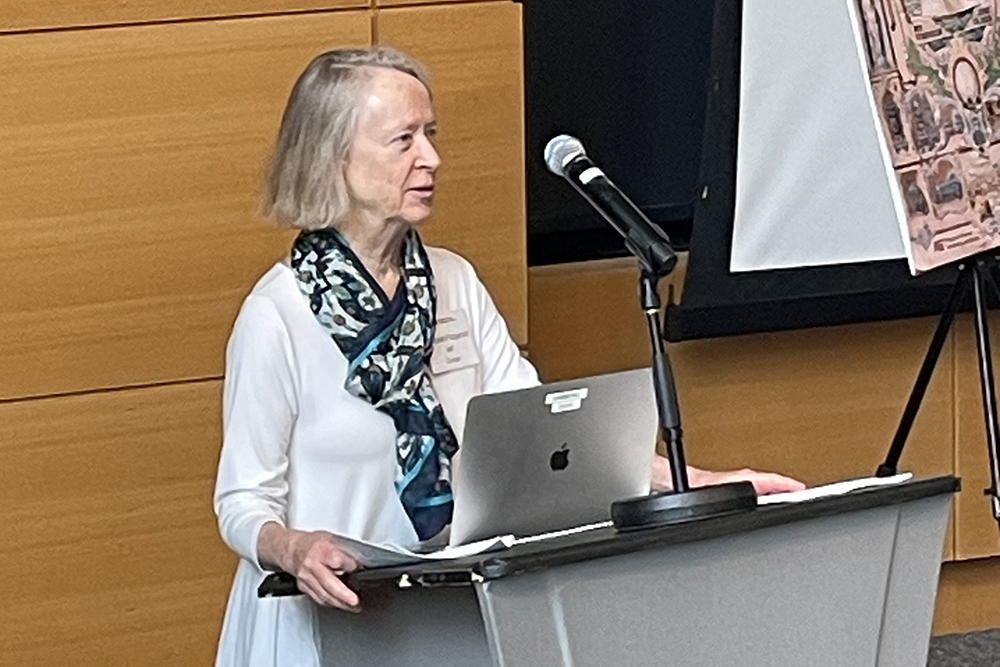
During a recent history of technology symposium at MIT, participants shared exciting ideas about the future of their field.
Benjamin Daniel | School of Humanities, Arts, and Social Sciences
The MIT Program in Science, Technology, and Society (STS) recently organized and hosted a two-day symposium, The History of Technology: Past, Present, and Future.
The symposium was held June 7-8 at MIT’s Wong Auditorium, and featured scholars from a variety of institutions with expertise in the history of technology. Each presented their ideas about the intersection of science, technology, and society, the field’s needs, and opportunities for its future development.
“We’re pleased to provide a venue in which these kinds of conversations can occur,” said Deborah Fitzgerald, STS program head and former dean of MIT’s School of Humanities, Arts, and Social Sciences.
The symposium opened with welcoming remarks from Fitzgerald and MIT Professor Merritt Roe Smith. Fitzgerald and Smith are both Leverett Howell and William King Cutten Professors of the History of Technology at MIT.
“These kinds of gatherings — of old friends and colleagues and several generations of students — create new opportunities to advance scholarship, create connections, and keep abreast of what’s happening in the field,” Smith said. “Seeing the future through the lens of our shared pasts adds an important perspective on current innovations.”
More than 20 scholars made presentations during the symposium. The topics and speakers included:
- David Lucsko PhD ’05, professor of history at Auburn University: “How Things Work and Why It Matters — or, Why Poring over Automotive Wiring Diagrams from the 1970s Isn’t Actually a Colossal Waste of Time;”
- Dave Unger, an independent public historian: “Tools for Imagining a Better World: Social Technology, Organizational Dark Matter, and Reading for Difference;”
- Gregory Clancey, associate professor at the National University of Singapore: “The History of Technology in an Age of Mass Extinction;” and
- Ruth Schwartz Cowan, professor emerita at the University of Pennsylvania: “Does the History of Technology have a Paradigm?”
